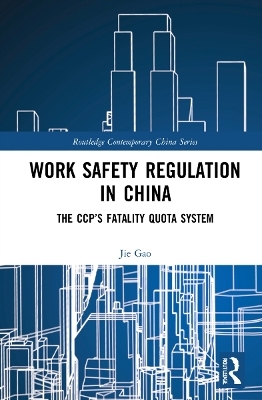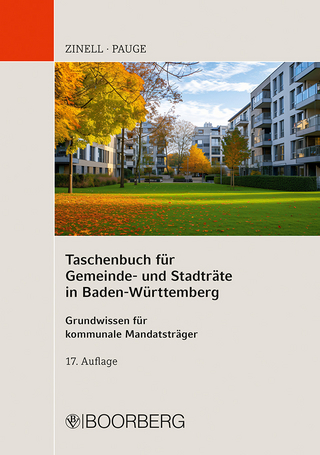
Work Safety Regulation in China
The CCP’s Fatality Quota System
Seiten
2024
Routledge (Verlag)
978-1-032-22255-4 (ISBN)
Routledge (Verlag)
978-1-032-22255-4 (ISBN)
Fatality quotas implemented in China’s industrial sector are being used to promote work safety and therefore, reducing the number of work-related deaths. Given the controversial nature of this policy, Gao analyzes how the fatality quotas are functioning to aid the country in balancing economic growth and social stability.
Fatality quotas implemented in China’s industrial section and local governments are being used to promote work safety and therefore, reducing the number of work-related deaths. Given the controversial nature of this policy, Gao analyzes how the fatality quotas are functioning to aid the country in balancing economic growth and social stability. The book also examines significant implications caused of this policy’s implementation in the local regions, and reveals how local officials attempt to handle these problems.
This is the first book to systematically examine the role of death indicators in work safety improvement in contemporary China, revealing insight into Beijing’s quota-oriented approach to policy-making.
Fatality quotas implemented in China’s industrial section and local governments are being used to promote work safety and therefore, reducing the number of work-related deaths. Given the controversial nature of this policy, Gao analyzes how the fatality quotas are functioning to aid the country in balancing economic growth and social stability. The book also examines significant implications caused of this policy’s implementation in the local regions, and reveals how local officials attempt to handle these problems.
This is the first book to systematically examine the role of death indicators in work safety improvement in contemporary China, revealing insight into Beijing’s quota-oriented approach to policy-making.
Jie Gao is an assistant professor at the Department of Political Science, National University of Singapore. Her research focuses on China’s political and administrative reforms, particularly in the areas of performance management, work safety regulation and cadre management.
1. Introduction 2. Blood-Soaked GDP? 3. China’s Work Safety Management System 4. A Pony Too Small for the Big Cart 5. The Fatality Quota System 6. Why the Fatality Quotas? 7. Has Work Safety Improved? 8. Conclusion
| Erscheinungsdatum | 19.04.2022 |
|---|---|
| Reihe/Serie | Routledge Contemporary China Series |
| Zusatzinfo | 21 Tables, black and white; 28 Line drawings, black and white; 28 Illustrations, black and white |
| Verlagsort | London |
| Sprache | englisch |
| Maße | 156 x 234 mm |
| Gewicht | 453 g |
| Themenwelt | Sozialwissenschaften ► Politik / Verwaltung ► Staat / Verwaltung |
| Sozialwissenschaften ► Soziologie ► Spezielle Soziologien | |
| Wirtschaft ► Betriebswirtschaft / Management ► Marketing / Vertrieb | |
| Wirtschaft ► Volkswirtschaftslehre ► Wirtschaftspolitik | |
| ISBN-10 | 1-032-22255-7 / 1032222557 |
| ISBN-13 | 978-1-032-22255-4 / 9781032222554 |
| Zustand | Neuware |
| Haben Sie eine Frage zum Produkt? |
Mehr entdecken
aus dem Bereich
aus dem Bereich
Organisationen steuern, Strukturen schaffen, Prozesse gestalten
Buch | Softcover (2024)
Rehm Verlag
38,00 €
Buch (2024)
Richard Boorberg Verlag
19,00 €


